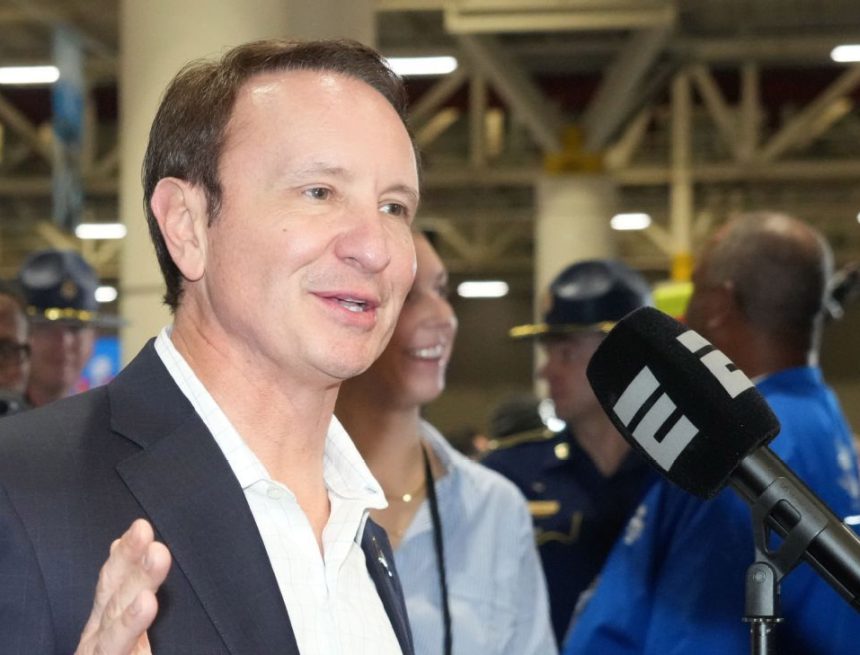After 15 years of turning down offers to perform standup comedy in Saudi Arabia due to the country’s human rights record, this time I took the gig. Why?
There’s a push for change in Saudi, and signs are discernible. Yet many from the outside would rather comedians in the west stayed away. At a time when freedom of speech is under attack, the backlash against comedians who participated in the Riyadh comedy festival reflects our ongoing struggle to find consensus on this and many issues affecting humanity.
I am no stranger to cancel culture. I was cancelled after 9/11 simply for being Middle Eastern, as Arab terrorists were behind the attacks on the twin towers. This is despite the fact that I am not Arab, nor am I, contrary to popular opinion, a terrorist.
In certain circles there have been calls to boycott my UK tour Namaste, a show in which I try to explore the nuances of the complex geopolitical landscape of the Middle East. After explaining that the restrictions on performing in Saudi were exactly the same as in Dubai – basically no jokes about the royal family, no disrespecting Islam and no humiliation of the government – a concerned friend texted me, “I think you’re at risk of invalidating your right to make jokes about anything important.” My show in Riyadh had a lot of material about the Saudis themselves. The perception that we, as comedians, were all being paid to be silent was as laughable as the idea that Dave Chappelle, a hugely successful comic with an estimated worth of $70m (£52m), was doing his show in Riyadh for the money.
This perception, it should be said, might have its roots in comments made by an American comedian/podcaster who, prior to the festival, mentioned a figure that he was apparently receiving. He says this led to him being uninvited. Whether it was his material about the regime or just mentioning money in public, we do not know. The comedy guide Chortle erroneously reported that the pay was “between $375,000 (£278,000) and $1.6m (£1.2m) for those doing solo shows”. One thing east and west can agree on is don’t talk about your fee publicly, because it is likely to cause consternation among the other performers – most of whom received a significantly smaller amount than the American podcaster was purportedly set to receive.
It’s worth remembering that governments are not their people. Especially in Iran, where the chasm between the people and the regime is perhaps wider than ever before. If I’d had an inkling that changes similar to those emerging in Saudi Arabia right now were happening inside Iran, and a comedy festival was taking place in Tehran (and pigs were flying), I can assure you I would be on the first pig over. As it is, expecting behavioural change from the Islamic regime in Iran would be like being attacked by zombies and politely asking them if they would consider a vegan diet.
So, for those who are interested, some reflections:
Allowing international performances in Saudi, especially comedy, subtly broadens what’s thinkable and sayable in a society. Every laugh at a taboo subject shifts norms, albeit slightly. Bear in mind “slightly” is a seismic movement in the Middle East. Dubai is a very different place now to what it was when I first performed there in 2008.
When artists perform in the Middle East they don’t just face “the regime”. They face real people, many of whom are reform-minded, quietly disillusioned youth who want to embrace new ideas without betraying their own culture and beliefs.
As an international performer I like to connect with local artistes. As a Middle Eastern comedian I am of the view that a blanket boycott tends to dismiss and patronise ordinary Saudis, often those eager for exposure to diverse culture.
There’s a saying in the Middle East: “It’s not about what you hear, it’s about being here.” And the truth is, if you’re sitting behind a keyboard on the other side of the border lecturing on a social media site owned by a billionaire, then your capacity to contribute to positive change might be somewhat compromised.
One significant sign of progress in the Middle East is how women are treated. In Saudi, women were not even allowed to drive until 2018. Seven years later I am on stage in Riyadh doing jokes about it. A routine at the expense of the men who get frustrated with women who actually abide by the traffic laws went down well.
after newsletter promotion
Going to Saudi Arabia is not about endorsing a regime. Performing is not selling out. Rather it is about sharing laughter and a chance for cultural exchange as a force for social transformation. And we underestimate the transformative power of comedy at our peril. So I went.
And the gigs were great. Packed houses, young crowds, popcorn, standing ovations, even heckling. About 80% of the audiences were locals, many of whom had never seen a live comedy gig. I saw the Northern Irish comedian Jimeoin speak about getting older and suffering varicose veins, on his nether regions. After the show, a discussion broke out between Saudis discussing remedies they could suggest, such as pomegranate juice. If that’s not a step towards east/west relations then I don’t know what is.
I’ve waited years for something like this to happen – millions of us with links to the region see it as a miracle of change. And privileged individuals either privately or online instructing me on what I should or shouldn’t do regarding gigs in the Middle East is symptomatic of the worrying ignorance that continues to exist. Not all parts of the region are the same – and should not all be given the same blanket treatment.
One American comedian not invited to the festival wrote of the comedians who went to Riyadh, “your hypocrisy will never be not noted.” Another American who turned down the offer was reported to have said, “I said no because I won’t do a show in a country responsible for 9/11.” Two funny guys I like very much. But maybe go there first before judging the region, its people and the motives of those who choose to travel there?
Saudi Arabia – I’ll be back there soon. Just hope none of the shows are axed.
-
Omid Djalili is a standup comedian, actor and writer.
-
Do you have an opinion on the issues raised in this article? If you would like to submit a response of up to 300 words by email to be considered for publication in our letters section, please click here.


